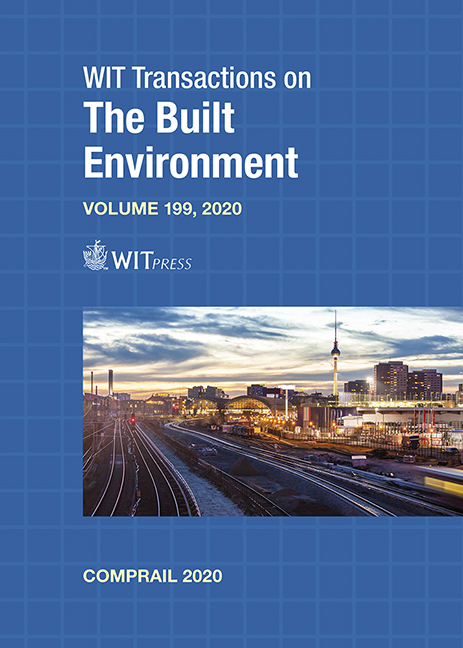TRANSIT ASSIGNMENT MODEL FOR EXPRESS TRAINS BASED ON INVERSE OPTIMIZATION
Price
Free (open access)
Transaction
Volume
199
Pages
6
Page Range
107 - 112
Published
2020
Paper DOI
10.2495/CR200101
Copyright
WIT Press
Author(s)
KYUNG MIN KIM
Abstract
A loading balance between express and local trains is a crucial issue on the train operation plan of urban railway, which provides two services on the same line. This is because passenger’s preference is affected by the train operation plan, such as headway and halting patterns. Recently, Seoul Metro Line 9, in Korea, has experienced an imbalance, as the preference for express train over local train services is significantly higher, so the load factor for the express train was twice as much as for the local train. As such, to analyse load balance, a schedule-based transit assignment to determine the ridership by section and by train is needed when a timetable for trains and passengers’ trips is given. This paper develops the cost function considering the transfer between express and local trains as well as the train load factor in the time-expanded network via inverse optimization. We suggest a convex optimization model to ensure the path that the passenger has selected will cost less than the alternative path, and from this model, the parameters of the deterministic cost function were estimated. We employed the Frank-Wolfe-based transit assignment algorithm to estimate the equilibrium flow using our cost function. The algorithm was tested to Seoul Metro Line 9 in order to verify its accuracy. The results show that the difference in the actual ridership by train was less than 10%. Finally, we simulated reducing the load difference between the express and the local train through re-scheduling to increase the service frequency of express trains.
Keywords
inverse optimization, transit assignment, express trains





